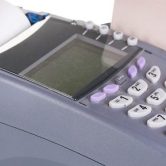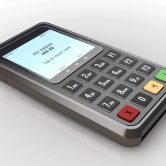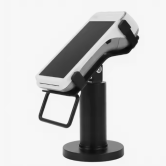- Your cart is empty Browse Shop
What is ePOS

It’s the most frequently asked question our ePOS team get asked. What exactly is an ePOS system? ePOS is an abbreviation for Electronic Point of Sales System. In this blog we will aim to cover the main topics relating to an ePOS system, and the basic values and elements relating to an ePOS till to help you gain a greater understanding.
Are you contemplating investing in an ePOS system but you’re not sure where to start, well take a tour with Wireless Terminal Solutions.
What Hardware Will You Need for Your ePOS System?
An ePOS system is made up of essential components.
- To accept card payments via debit and credit cards you will need a contactless card machine
- To accept cash payments you will need a cash drawer
- Depending on your requirements and the type of business you’re operating, you may require a barcode scanner
- To issue receipts to customers you will need a printer
- To register sales using an ePOS system you need either a dedicated POS terminal or a facility in which you can take card payments
The above may seem a lot to digest, but every business selecting from the above availability will give them unequivocal flexibility, and it’s worth remembering that not every business will have all of the above components. Every customer’s requirement is different, and an ePOS system can be tailored towards their needs.
Many years ago, ePOS systems were always regarded as expensive pieces of hardware that weren’t affordable to smaller SME businesses. As technology has evolved this has been reflected in more cost effective prices being made available, allowing more companies to use ePOS hardware.
When it Comes to the ePOS Software – What Should a Business Look Out For?
The previous topic should have given you an idea of the components involved relating to the hardware of an ePOS unit, but in addition to this you will also need software to run in conjunction.
Just by searching “ePOS software” on the internet you will see a whole host of companies delivering various ePOS software packages. Some are superior to others, it’s always worth doing some research and see what trials are available, and read reviews from other customers. A few things to ask yourself:
- How often is the software updated?
- What is the monthly cost relating to the ePOS software?
- What programs are offered as standard and how insightful are they to use?
- What’s the application cost?
- What ongoing support will I be provided?
- Is technical support included in that fee or is that an additional cost?
- How easy is it to develop an ePOS system in your business?
If you don’t feel the answer you are provided with is clear, ask again and again if necessary. It’s in your interests. You need to make sure you fully understand what you’re committing too, and have a firm understanding of how your ePOS software will be tailored towards your business. Many companies like the added insurance of ongoing support, and if your business operates unsociable hours i.e. bar, pub etc. you need to make sure you are choosing an ePOS supplier that will be able to support you outstanding standard working hours.
Enhancing the Customer Experience and Collecting Vital Data
The benefit of offering customers an enhanced service overall is obvious, but collecting reliable data is worth its weight in gold as you look to grow as a business.
You will no longer be second guessing or relying on intuition, you will have the statistics in front of you, all of which is reliable and credible.
Choosing an ePOS System – What You Need to Consider
Choosing a point of sale system is one of the most important decisions both experienced and new business owners will ever make. Do not be hasty in committing to the first company you speak to, shop around, ask the right questions. Most companies who opt to invest in a point of sale system probably do so because they need to take transactions and they will greatly benefit employee and inventory management and allow you to access up to the minute data that will revolutionise your business and give your company momentum.
Aside from the daily sales reports, you will invariably want other sales reports, i.e. best selling items, inventory reorder, ‘X’ and ‘Z’ reports, sales individual reports, sales and inventory activity by date range, and customer activity. If you’re not sure what all of this means, you can read a breakdown of necessary reporting here.
Another crucial aspect of the reporting is being able to check how sales are doing within your business from anywhere anytime. In essence, this means if you’re away on business you will still be able to check, average sales values, the number of customers who have made a purchase, total transaction counts and a report giving an hour by hour breakdown.
Now that you’ve learned some bare essentials for what to be on the lookout for when choosing a point of sale system, you’re ready to hit the ground running and start the bulk of your research. Remember, the more time you put into your research today, the more it will pay off in the future when you’ve chosen the perfect system for your business. If you’d like any advise on an ePOS system please get in touch with a member of the Wireless Terminal Solutions team on 0345 459 9984 or email sales@wirelessterminalsolutions.co.uk.




